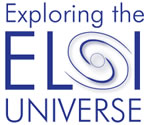Last updated: May 11, 2012
2011 News Feature Ethical Legal And Social Issues Of Genomic Research Spotlighted At Elsi Congress 2011
Ethical, legal and social issues of genomic research spotlighted at ELSI Congress 2011
By Jeannine Mjoseth
NHGRI Staff Writer
Researchers confronted a plethora of plenaries, sessions, workshops and posters on the ethical, legal and social implications (ELSI) of genomic research at Exploring the ELSI Universe [genomics.unc.edu], the 2011 ELSI Research Congress held April 12-14 in Chapel Hill, N.C. Throughout the meeting, 350 attendees chose from numerous concurrent sessions on topics as diverse as the genetics of antisocial behavior, indigenous people navigating ELSI issues in genomic research, or the relationship between tissue donors and biobanks. The Center for Genomics and Society at the University of North Carolina (UNC) at Chapel Hill hosted the meeting, with support from other North Carolina institutions. This was the first ELSI Congress since 2008.
Eric D. Green, M.D., Ph.D., director of the National Human Genome Research Institute (NHGRI), which funded the conference, kicked off the proceedings with a discussion of ELSI's role within NHGRI's newly released strategic plan.
"In February, we published a strategic plan for the future of human genome research [See: Charting a course for genomic medicine from base pairs to bedside![]() ]. The section on Genomics and Society highlights in brief what we believe are the most pressing issues in ELSI research. Over the next year, we plan to examine ELSI closely with the goal of reinvigorating NHGRI's portfolio in this domain," said Dr. Green. Among NHGRI's ELSI Research Domains are:
]. The section on Genomics and Society highlights in brief what we believe are the most pressing issues in ELSI research. Over the next year, we plan to examine ELSI closely with the goal of reinvigorating NHGRI's portfolio in this domain," said Dr. Green. Among NHGRI's ELSI Research Domains are:
- recruitment issues (including diversity in research participation) related to participating in genomic studies.
- perceptions of risks and benefits of participating in genomic research by the public, research participants, researchers and Institutional Review Boards.
- privacy and identifiability of genomic information.
- governance structures for genomic repositories; treatment of archived samples.
- return of individual research findings (including incidental genetic findings).
"Many approaches should be pursued to support this research," said Dr. Green. For example, NHGRI currently has two grant opportunities focused on the ELSI implications of returning research results to study participants that might be informative in predicting their disease risk, he said.
The return of results issue reflects a major shift in how researchers see their obligations to research participants, in this case, to provide clinically relevant information, when in the past, this was not seen as something that researchers should do, according to Gail E. Henderson, Ph.D. [med.unc.edu], congress organizer and professor of social medicine in the school of medicine, and adjunct professor of sociology at the University of North Carolina at Chapel Hill.
"We are asking participants to contribute specimens and personal data to biorepositories and large databases like dbGaP (the federal database of Genotypes and Phenotypes), and this is changing what being in a research study really means," said Dr. Henderson. "In the past, people gave consent to a particular study that was described to them. Now, they are asked to join a biobank that may share their samples and data with many unknown researchers and unspecified research projects. It changes the meaning of informed consent and new policies are needed to address these changes, a second theme of the congress."
The third theme - health equity and genomic research - was introduced with two plenary talks, by noted Harvard health disparities researcher, Dr. David Williams, and geneticist/physician Dr. Wylie Burke, whose ELSI research center at University of Washington in Seattle focuses on genomics and health care equality.
"The Congress took an interdisciplinary approach that includes ethics and philosophy, social sciences and legal research," said Henderson, noting that 107 institutions from 29 states attended the meeting. Many of the attendees were from NHGRI's Centers for Excellence in ELSI Research (CEERS), which require provision of "innovative, substantive training opportunities across appropriate disciplines" and efforts to develop and recruit ELSI investigators from underrepresented minority communities. While some participants have been in the ELSI world for decades, the meeting was also attended by an entire new generation of talented and deeply engaged young ELSI researchers to whom the "torch" will be passed, she said.
"This was a unique opportunity for colleagues to get together to talk to each other with a minimum of competitiveness," said Dr. Henderson. UNC's Center for Genomics and Society will issue a white paper, including descriptions of each session, in early summer.
ELSI research will impact more than the field of genomics, said Dr. Green. NHGRI is the number one funder of bioethics at the National Institutes of Health, offering leadership and expertise across all institutes.
Among the investigators from eight countries who attended the meeting were those advocating a global approach to ELSI issues, comparable to the scope of the Human Genome Project. Jane Kaye, D.Phil., director of the Centre for Health, Law and Emerging Technologies at the University of Oxford, announced the publication of a new paper on a global vision for ELSI research (See: Developing a Global Vision for the Future of ELSI Research [publichealth.ox.ac.uk]. According to Dr. Kaye, falling sequencing costs are making affordable research that goes beyond the traditional large-scale centers and are expected to help address underrepresentation of diverse individuals in genomic studies.
Other meeting hosts included the Carolina Center for Genome Sciences; the UNC School of Medicine Department of Social Medicine; the UNC Center for Bioethics; the Wake Forest University Center for Bioethics, Health and Society; and the North Carolina Translational and Clinical Sciences Institute.
To view the PDF document(s) on this page, you will need Adobe Reader. ![]()
Last Reviewed: May 11, 2012

